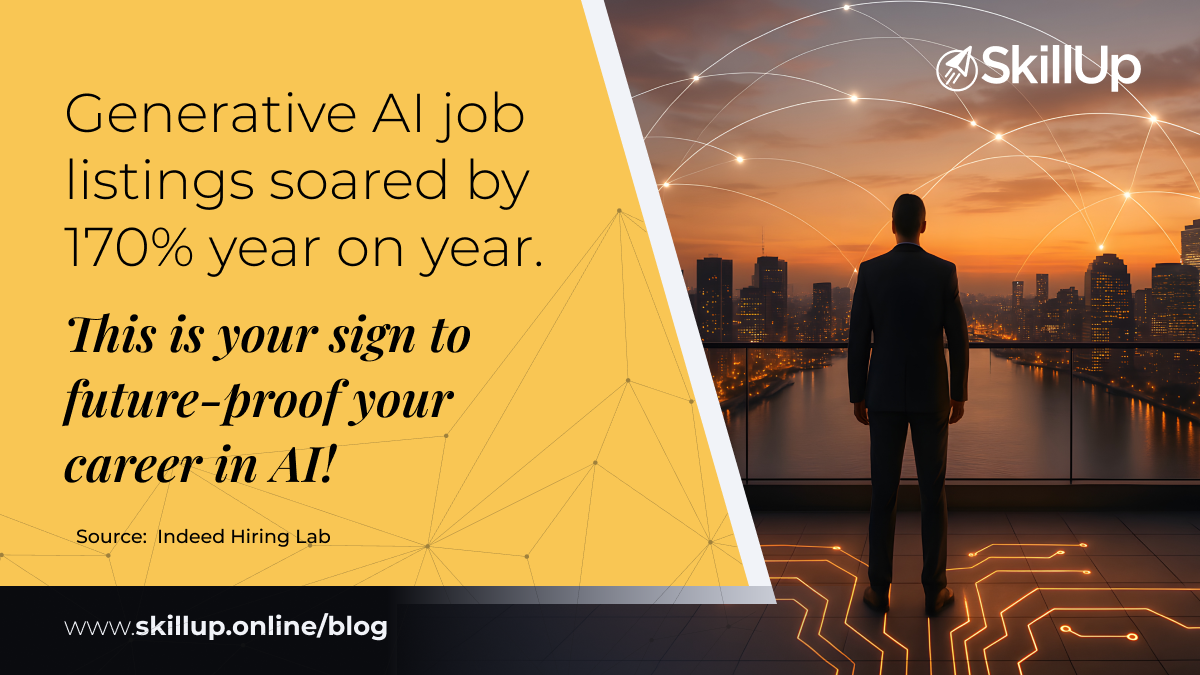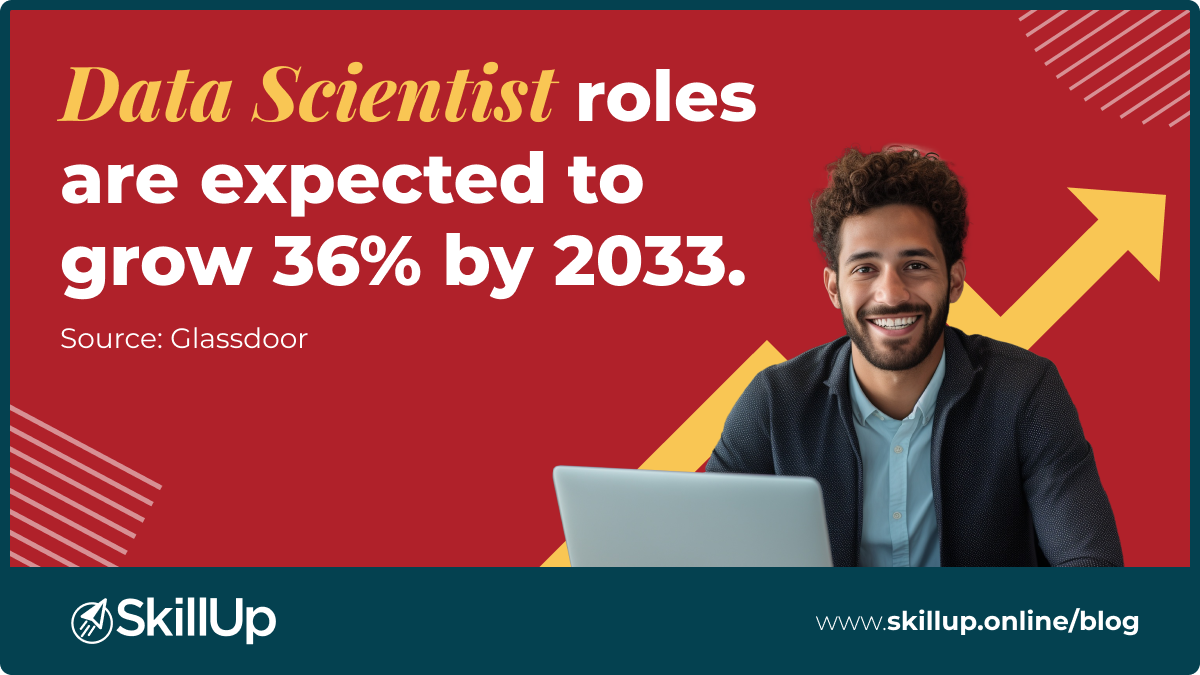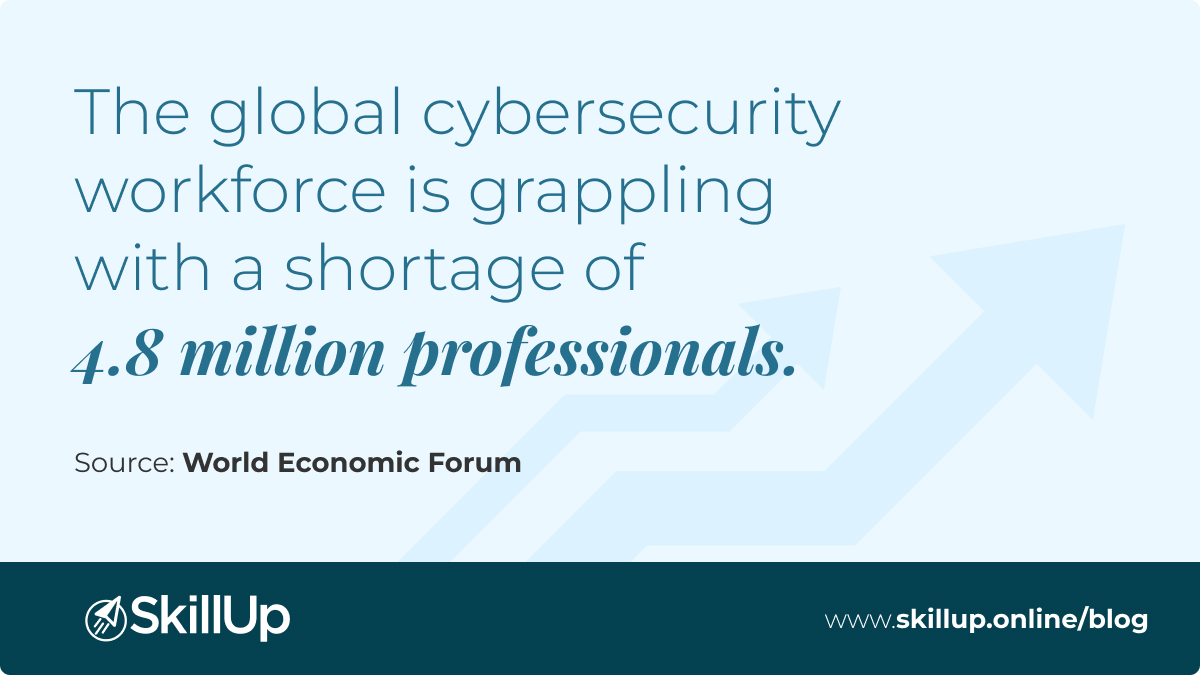What is Digital Transformation?
You don’t have to be following the latest IT news to have heard that new technologies are causing major disruption in the way that we live, work, and play. Digital transformation, in the form of emerging technologies such AI and machine learning are on the brink of moving us into a new era of possibilities. From the classroom to the boardroom. technology is getting smarter and IT professionals need to understand what’s happening and how they can keep current with the latest skills.
In today’s post, we will explore digital transformation trends to help understand; where we are going, why we’re going there, as well as the potential surprises that are in for you as an IT professional. Let’s dig in.
Artificial Intelligence
From an organizational perspective digital transformation is not just about upgrading technology. It’s about leveraging technology to build quantifiably better products and solutions. Although artificial intelligence has received a lot attention in the recent years, its impact on achieving those ideals is still in its early stages, but will continue to be among the top trends to watch. In 2019 and beyond, we’ll see more adoption and integration of AI in business applications.
If you are new here, artificial intelligence refers to computer systems designed to imitate human intelligence and perform tasks such as decision making, and recognition of speech, patterns and images. The beauty of it is that an AI can perform these tasks in a faster and more accurate manner than humans.
Artificial intelligence is a part of what is broadly referred to as automation. Automation has always caused a lot of apprehension among employees due to the fear of job loss. According to experts, automation will render 73 million jobs obsolete by 2030.
Automation is, however, creating new jobs as it eliminates others. By 2030, AI will have created 23 million jobs in programming, development, support and maintenance and testing among many others. One of the positions that will be created is that of an Artificial Intelligence Architect. Some even reason that this position will rival data scientist in the need for skilled tech professionals.
The Last ten years of IT have been about changing the way people work. The next ten years of IT will be about transforming [their] business.Aaron Levie | CEO of Box
Machine Learning
Another reason why the buzz around artificial intelligence is not about to die is because it has developed new branches such as machine learning.
Machine learning is a branch of artificial intelligence in which computers are programmed to learn to do things that they are not programmed to do. The computers use data to discover patterns and insights and use them to learn. Learning happens in two major ways: supervised and unsupervised learning.
Machine learning also has divisions of its own. They include natural language processing (NLP), neutral networks, and deep learning. All of these subsets offer you an exciting opportunity to specialize in a career field that is indispensable in a digital world.
Already, there’s a high demand for professionals with skills in machine learning and its subsets brought about by the rapid deployment of the technology in different kinds of industries. It is estimated that by 2022, the machine learning market will have grown to 8.81 billion dollars.
Machine leaning applications are used for data mining, data analytics and pattern recognition. It also powers web search results, network intrusion detection, and real time ads. These are just a few of the many tasks that machine learning is capable of doing.
Besides taking over tasks we would otherwise have to do ourselves, machine learning also creates new jobs. In fact, jobs related to machine learning rank among the top emerging jobs on LinkedIn, with more than 2,000 job listings posted. The jobs pay well too! The median salary for a machine learning engineer in 2017 was $106,225. Some of the top machine leaning jobs include engineers, developers, researchers and data scientists.
Robotic Process Automation (RPA)
Here is another technology that is automating jobs. Robotic Process Automation is concerned with automating business processes such as replying to emails, dealing with data, processing transactions and interpreting applications. RPA automates the repetitive tasks that have previously been done by humans. The tasks automated by RPA are not limited to menial tasks done by blue-collar workers: 45% of the tasks we do including those done by doctors, financial managers and CEO’s can be automated.
Although RPA will threaten the livelihood of 9% of the global workforce, it is also altering existing jobs while at the same time creating new ones. According to findings by McKinsey, only about 5% of occupations can be completely automated but about 60% of jobs can be partially automated.
As an IT professional who is trying to understand IT trends that will change things in the near future, RPA presents a variety of career opportunities including business analyst, developer, solution architect, project manager, and consultant.

Blockchain
Apart from being the technology that powers cryptocurrency, blockchain offers security that can be useful in many other ways. Blockchain is simply data that you can only add to without subtracting from it or altering it in any way. The immutability of blockchain is what makes it so secure. What is more, blockchains are consensus driven, so no one person or organization can control the data contained in a blockchain. It also eliminates the need for third parties and other intermediaries.
This increased security is what makes Blockchain suitable for cryptocurrency and why it can play a vital role in the protection of information such as personal medical data. Blockchain is also being used to improve the global supply chain and protect assets such as real estate and art.
As far as blockchain based jobs are concerned, we are already lagging behind. According to TechCrunch, every blockchain developer brings about 14 job openings. This makes blockchain related jobs the second fastest growing category of jobs. A blockchain developer focuses on using Blockchain to create and implement infrastructure and solutions. An average blockchain developer makes about $130,000 or more per annum.
Other blockchain related careers include software engineers, project managers, and consultants. Jobs are available at financial institutions and also in healthcare and manufacturing.
Cyber Security
Cyber security has been around for a while now, so it might not seem as an emerging technology. However, since cyber security threats are constantly new, cyber security has to keep evolving to deal with hackers who are trying to gain illegal access to data.
Another reason why cyber security has to keep evolving is because new technology is constantly being adopted to enhance security. Some of these advancements include cloud technology, hardware authentication, deep learning, data loss prevention and behavioral analytics. Cyber security will remain to be an emerging technology as long as hackers continue to exist because it will have to keep evolving to defend against these hackers.
There is a strong need for cybersecurity professionals. The number of cybersecurity jobs is growing three times faster than other tech jobs. There is however a shortage of tech professionals to fill these positions. Consequently, by 2021, we will have 3.5 million unfilled cybersecurity jobs.
Lucrative opportunities you can be on the lookout for here include; security engineer, ethical hacker and chief security officer. Most of these positions pay six-figure salaries.
Internet of Things
Internet of things is the future. ‘Things’ are now being built with Wi-Fi connectivity so they can connect to the internet and to each other, hence the ‘Internet of Things’. In 2017, the number of IoT devices reached 8.4 billion. We are however still in the beginning stages of IoT and by 2020, 8.4 billion devices will be connected through IoT.
Consumers are already benefiting from the internet of things through various smart devices such as doors that can be locked remotely. Businesses can also reap numerous benefits from IoT. It can be used to enhance security, safety and the decision- making process in business. What is more, IoT can be applied in preventive maintenance, improving customer service and speeding up medical care.
Despite this windfall in the adoption of IoT, not enough IT professionals are being groomed for the 200,000 positions that will be required in this sector. The major obstacle to growth in this industry seems to be lack of adequate skills.
This presents an opportunity for easy entry into the field if you are a highly motivated tech professional. Crucial skills you can work on for a career in IoT include cloud computing, security, automation, data analytics, understanding of embedded systems, device knowledge among others.
Final Word
Digital transformation is real – and it will continue to influence how we work and interact far beyond the year ahead. The other thing we know for sure is that the emerging technologies will create promising career opportunities for IT professionals. We hope this post serves as a compass of sorts that will open new doors within your chosen field and others.
What say you? Share your thoughts in the comment section below.





